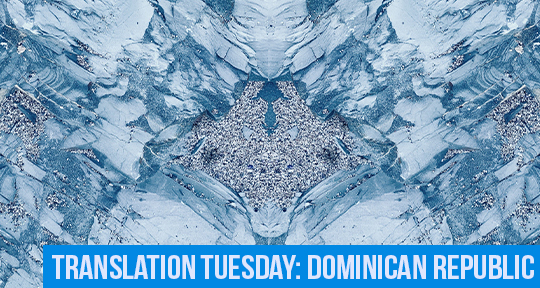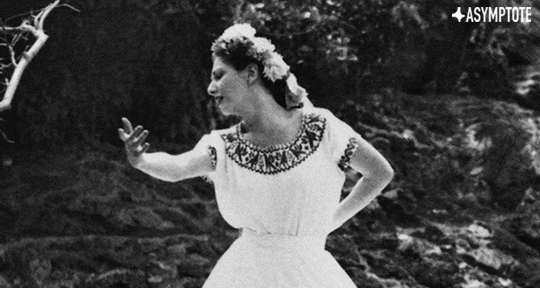Pedro Mir (1913–2000), former poet laureate of the Dominican Republic, is often compared to Pablo Neruda and Derek Walcott for his lyricism and social engagement. Yet, as Jonathan Cohen demonstrates in his award-winning essay (selected by J.M. Coetzee for Asymptote’s Writers on Writers contest), Mir remains relatively obscure in the Anglophone world. In his essay, Cohen introduces us to this “Whitman of the Caribbean” who, at home and in exile, sang resplendently of the multitudes of islands and peoples in his fiercely political register. Ahead of Mir’s death anniversary on July 11, we are proud to showcase four poems translated by Cohen that reveal another face of Mir’s diamantine poetic personae, this time: the passionate lover, the rhapsodic suitor, the ecstatic agonizer. With surrealistic turns of phrases that surrender to an impassioned dream logic, these verses from his 1969 collection, Poemas de buen amor . . . y a veces de fantasía (Poems of Good Love . . . and Sometimes Fantasy), are charged with an eroticism not only for his beloved subject, but for language too and its capacity for image-making. They attest to why Mir should be counted amongst the best poets of the twentieth century.
“Translating Pedro Mir’s love poems into English is both a critical and creative challenge. Like all his work, these poems are finely wrought constructions. The task for me was painful at times because discerning the exact meaning of certain words racked my brain, especially in surrealistic passages. The translator must often choose one over several possibilities. Not only that, the rhymes and metrics of the traditional poetic forms that Mir uses so beautifully, as in his ‘Sonnet of the Grateful Girl,’ are impossible to recreate without padding. Translation of these poems, at best, is an approximation. Yet it still is possible to make real poems in English, using Mir’s work as a blueprint, that are faithful to his verse—poems that give Anglophone readers the experience of the potent lyricism and originality of his voice, poems that sound like him and convey his intent. This has been my goal.”
— Jonathan Cohen
Invitation
To begin I offer you
a bouquet of words
as an illustration and firelight and bubbling of a spring.
Then I give you the warmth of my hands
for the shiver of your belly.
Then I give you the chemistry of my blood
coursed through all the viaducts of oxygen
and the lime and nerves of my teeth.
And in addition my nutrients
my iodine and my magnesium
my phosphorus and my salt
my albumin and my sand.
And plus I give you
my face dissolved
at the temperature of my genes
or my family.
And you won’t need anything more to receive
and keep forever
and maybe sob over for a brief moment
so as to acknowledge that now
that now you are saved from oblivion
and you are invulnerable to death. READ MORE…



